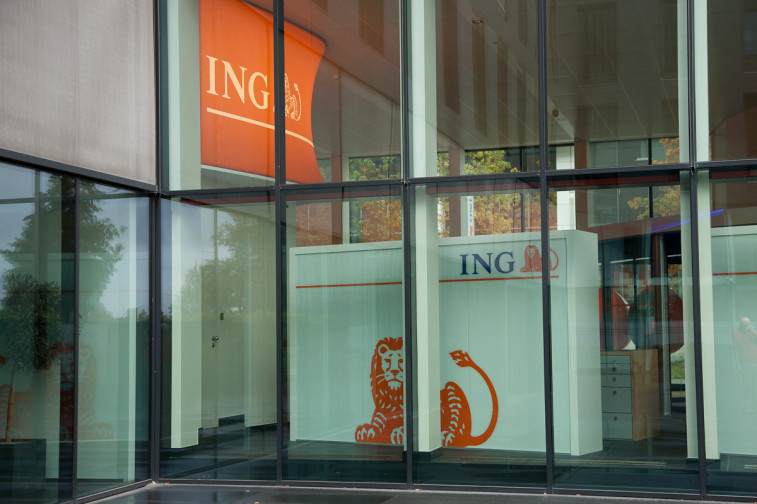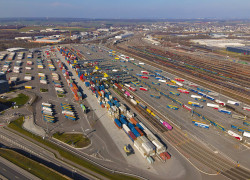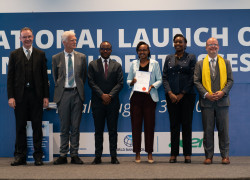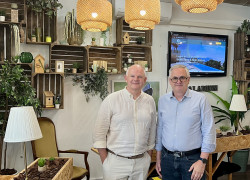What “how we pay” says about us
As new payment options keep becoming available, there has never been so many ways to pay for expenses. But how many of them do we really use, and which ones? Are there already too many choices or should there be more?
These were the questions in focus in the latest ING International Survey: just under 13,000 people in 13 European countries, with 526 in Luxembourg, were asked how they pay for their purchases and why they choose one payment option over the other.
How many payment options are actually being used in Luxembourg?
The number of different payment options people use in Luxembourg reflects both their social circumstances and affinity to technology:
- People are more likely to take advantage of different payment choices when they are part of the workforce: those employed full-time use an average of 5.7 different payment methods, compared to 4.3 for retirees.
- The levels of academic education also play a role. Those with a master’s degree or PhD use an average of 6.0 different payment methods, compared to 4.3 for those who did not finish high school.
- Perhaps related to the previous finding, those earning EUR 7000 per month or higher use an average of 5.9 different payment methods, while those earning EUR 2500 to EUR 4990 use an average of 4 payment methods.
- As for people who own a lot of technology devices - the most tech savvy – they also tend to use more options. If they own 9 different devices, they will use an average of 10.0 different payment options, compared to the 3.4 that are used by those who own only one piece of technology. This is potentially also a reflection of an early adoption mentality.
Regarding the use of traditional means of payment such as cash, age seems to be the dominant driver. When asked to assess the statement “I would be happy to leave my wallet and cash at home when I go out”, Luxembourg respondents aged 65+ mostly disagree (61%) while only 20% agree. The picture is reversed for their younger counterparts: 18-24 years old mostly agree (44%) while 28% disagree.
More payment options? Not necessarily for Luxembourg
While Europeans mostly appreciate having more payment options, people in Luxembourg seem not so sure. People were asked to assess the statement “The more payment options I have, the better”. A fifth (19%) of respondents in Luxembourg considered the statement to be completely true (vs. 25% for the European average) while 22% considered the statement to be not true at all (14% at European level). Subtracting the untrue from the true responses yields a net figure of -2%. This suggests that people in Luxembourg are neutral or slightly blasé in that regard. Such indifference is not in line with the European average (+12%) – though in line with the neighbouring countries France (-5%) and Germany (0%). The Netherlands and Belgium mostly reject more choice in payment options (-16% and -11% respectively):
Net strong agreeance with: "The more payment options I have the better"
Could the findings for Luxembourg be a result from the cognitive process known as "choice overload"? An academic study from 2000 found that less choice, not more, could well be better. This research[i] by Sheena Lyengar and Mark Lepper found that counterintuitively, people are more likely to buy something or be able to choose if given an array of 6 options than they are if offered 30.
Most people use an average of six payment methods
Regardless of where they are from and whether they want more choice, most people use just a handful of payment options: most people in the 13 European countries surveyed tend to use between 4 and 6 (Luxembourg: between 5 and 7) methods to make payments instore and online.
Specifically for Luxembourg, in the last six months, four in-store payment options – inserting a bank card with pin (79%), tapping a card without a pin (78%), cash (66%) and tapping a card with a pin (63%) – were used as declared by more than half of respondents. To make online payments over the past month, three options dominated: entering card details into a website or app (56%) or using online payments system PayPal (50%) and Payconiq/ Digicash (25%). The other options we presented could largely be considered emergency backups.
Survey responses unsurprisingly suggest that the most popular options are those that are secure and convenient. Respondents in Luxembourg want making a payment to be quick, and the payment method to be trustworthy. Comfort in familiarity also plays a role. For example, only 10% of Luxembourg residents say they prefer to use their phone to pay for small expenses instore over all other options.
Small in-store payments are driven by convenience, 40% of Luxembourg respondents say they select their preferred payment method because it is quick to use and 32% select theirs because it is easy. But for anything larger, security is more important than choice. For small expenses 14% say their payment preference is driven by security, moving to 28% for medium expenses and 43% for larger amounts.
Never without my wallet?
Combining the results for two of the questions mentioned above, a link emerges between a preference for more traditional means of payments and an aversion to multiple payment options. In our survey, the countries where more people disagreed with the statement “The more payment options I have, the better” were the same countries where people were more likely to disagree with the statement “I would be happy to leave my wallet and cash at home when I go out”. In Luxembourg, in aggregate, 32% agree and 43% disagree with the latter statement.
In conclusion
When people make payments, they want it to be easy and trust that it will work. Respondents in Luxembourg are generally averse to muddling through different options. As many of the payment options on offer are new and, for lots of people, untested, there is a certain reluctance to use them. Change is tricky and trust takes time.
Opportunities to increase awareness and familiarity may support adoption over time. Our survey has continually shown a classic bell curve in people's adoption of new things -- i.e. a slow pick-up of new users until pretty much everyone has joined in and newcomers tail off.
REad the full presse release here
Communiqués liés
RSA launches technology and management liability insurance s...
RSA Luxembourg, part of Intact Insurance Specialty Solutions, today announces th...
Lancement d'une nouvelle connexion intermodale entre Bettemb...
CFL multimodal a le plaisir d'annoncer le lancement de sa nouvelle connexion i...
Experts from LUNEX award first micro-credentials in Rwanda o...
The Rwanda Ministry of Education (MINEDUC) formally inaugurated Syllabi, a publi...
ERG Notes that ENRC Secures Landmark Victory as Court of App...
Eurasian Resources Group (ERG), a leading diversified natural resources group he...
LetzToken et La Vie est Belle annoncent leur partenariat ouv...
«?LetzToken?», plateforme de tokenisation pionnière basée à Luxembourg, et ...
ERG announces a Pre-Export Finance Facility Agreement based ...
Eurasian Resources Group (“ERG”, “The Group”), a leading diversified nat...
Il n'y a aucun résultat pour votre recherche







